Menu
Close
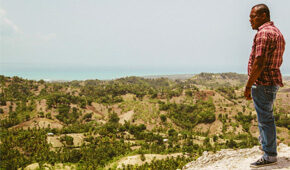
If we’re looking through the lens of the mainstream media, it’s all gang violence—like that’s all there is to the country.
Would it tell the full story of reggae, Maroons, Bob Marley, Usain Bolt, and the sheer power of Jamaican culture? No. So why do we let the world reduce Haiti to chaos and violence? It’s time we unlearn that bias and start seeing Haiti with our own eyes.
It’s not just unfair; it’s dangerous because. When we, as Caribbean people, swallow that one-dimensional version of Haiti without question, we allow the world to keep treating Haitians as disposable. We silently condone even our own CARICOM governments expelling Haitian asylum seekers from our shores, with the Unspoken understanding among us that Haitians fleeing danger are, themselves, dangerous.
Many of us may know that they were the first and ONLY Caribbean territory to successfully rebel against slavery, but maybe we don’t think enough about the cost endured, or we would revere them.
During the Haitian Rebellion, France killed almost 40% of the Haitian population in their genocidal mission to exterminate every male. The French did that. But you’re not scared of the French, are you? You’re scared of the people who are suffering the consequences of their brutality. Isn’t that oddweird?
Then, to add insult to genocide, they demanded payment—compensation for the loss of their control over Haitian lives and landbodies. Haiti was ordered to pay 150 million francs (around X billion dollars today) to France for the “crime” of freeing themselves, a debt that would have decimated any of our economies.
With France having the solidarity of other colonial powers, Haiti had no choice but to pay, over 30 billion dollars by today’s standards, and we—at the time still shackled ourselves— were too weak to help them. But what’s our excuse now? Where is our solidarity?
Even with our supposedly post-colonial stage, no one seriously affirms the demands that France pay it back. A search for petitions against this centuries long injustice yielded 11 results on Change.org with a total of 11,196 signatures. By comparison, 171,556 signed a single petion to ‘Save the Mexican Pizza’
Jean-Bertrand Aristide, the first Haitian leader—and only Caribbean leader ever—to demand France return that unjust debt, was removed in a 2001 U.S.-orchestrated coup (and later assassinated). Ironically, the same powers now lament Haiti as a “failed state with no centralized government.”
This wasn’t even the US’s first blow to the future of Haiti’s political stability. From 1915-1934, the U.S. “benevolently” occupied Haiti, gutting their democratic systems, dismantling local institutions (including initially dissolving the legislature) and rewriting the constitution to serve foreign interests (introducing, among other things, sale of land to foreigners). This set the stage for dictatorship, structural weaknesses and the displacement of subsistence agriculture by extractive industries. This period militarized Haitian politics and reinforced Haiti’s foreign dependence, fueling cycles of external intervention and authoritarian rule.
Their first ‘benevolent’ act being to seize over $500,000 from Haitian banks (worth about $15 billion today), claiming it was “for safekeeping”—funds they’re still apparently ‘safely keeping’ returned as poverty ravages the island.
“Haiti is not ‘poor’—it has been systematically impoverished.”
— Jean Casimir (Sociologist, Former Haitian Ambassador)
Haiti’s food sovereignty was also systematically dismantled under their occupation. Once a rice exporter to the US, Haiti saw its market destroyed when American intervention removed protective tariffs, flooding the country with cheap imports. Today, Haiti imports most of its rice from the US.
Perhaps most devastating was the 1981 Creole pig slaughter. When swine flu broke out (harmless to humans), the US forced Haiti to kill every indigenous pig——once the backbone of rural life providing food security, fertilizer, and economic stability. The replacement foreign breeds required more resources and couldn’t survive local conditions.
This economic and agricultural devastation triggered mass migration to Port-au-Prince, creating housing crises and unemployment that continue to fuel Haiti’s challenges today.
US media consistently portrays Haitian migrants as a plague—faceless masses threatening American stability, rather than individuals fleeing successive crises, several of which stoked by the US itself. This dehumanizing narrative provides convenient justification for mass deportations, with migrants rounded up and forcibly returned to the very turmoil they escaped.
More disturbing is how WE, members of CARICOM, internalize and replicate these same practices. Our own governments mirror these inhumane policies, turning away Haitian asylum seekers from our shores. We’ve swallowed the oppressor’s narrative about our Caribbean neighbors—the unspoken fear of Haitians fueled by the same toxic media diet that portrays them as inherently dangerous.
The reality couldn’t be more different. Statistics show that in states where Haitians settle most, they are three times more likely to work in essential industries like healthcare—serving as nurses, caregivers, and medical support staff—than to have any run-ins with the legal system, in spite systematic over-policing of their communities based—well, let’s face it— largely on the color of their skin (our skin).
When we accept these harmful narratives without question, we become complicit in the very system designed to marginalize people who look like us. We forget our shared history, culture, and struggles against the same colonial powers that first devastated Haiti for daring to claim its freedom.
What a lot of good learning about ‘divide and conquer’ did us when this colonial relic is still alive and well.
In spite of all Haiti has the BS it’s endured, while we have been too weak or too blind to help: Haiti is resilient as they AF. Its culture? Rich beyond words.
Instead of buying into racially driven foreign narratives that demonize people who look like, act like, and are us, we now hold the power to look and see for our selves —social media has democratized information, it’s now on us to look deeper.
“If you want to know Haiti, do not read headlines. Listen to our music, dance to our drums, see our paintings, and hear our poets.”
— Frankétienne (Poet, Playwright, Painter
“Haiti is not ‘poor’—it has been systematically impoverished.”
— Jean Casimir (Sociologist, Former Haitian Ambassador)

Showcasing stories of Caribbean organizations at the foreground of the struggle against disaster capitalism in the Caribbean. Our network of participants in the Greater Caribbean region connect, learn, share their hands on responses to the impacts of the twin threats of the climate crisis and disaster capitalism in our region.
WAVE (Progressive Reform Movement)
Global Challenges Research Fund
Open Society Foundations
All Rights Reserved – strongercaribbeantogether.org 2022
All Rights Reserved – strongercaribbeantogether.org 2022
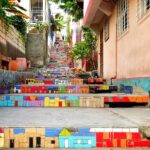
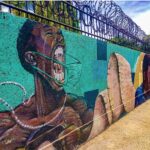
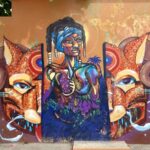
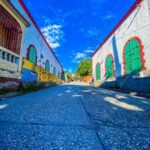

In the tumultuous aftermath of disasters, it is easy to feel isolated and alone, but you are not.
We, a network of Caribbean-wide community organizers who stand in solidarity with those affected the twin threats of the climate crises and disaster capitalism, a phenomenon that exacerbates the suffering of vulnerable communities.
We want you to know that your stories matter. We are here to listen, to support, and to amplify your voices.
We believe that together, we can challenge the forces of disaster capitalism and advocate for more sustainable, inclusive and equitable decision-making.
Join us in solidarity. Share your experiences and let’s build strong communities that thrive together.
As the wider world braces for the climate change, Caribbean communities are already struggling with its effects. Small local communities, small scale farmers and coastal communities are disproportionately affected. Political decisions, power dynamics and laws often compound the catastrophes and silence bottom up solutions.
There are ways in which you can help.